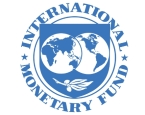Tag Archives : switzerland
To Control Leviathan, even the IMF Agrees that Spending Caps Are Far More Effective than Balanced Budget Requirements
Never would have guessed the IMF would admit this.
read more...Landslide Vote against Single-Payer Healthcare Confirms that Switzerland Is an Outpost of Rationality in a Statist Continent
I’m a huge fan of Switzerland, largely because its voters approved a spending cap that should be a role model for other nations. It’s called the “debt brake” and it has helped reduce the burden of government spending in Switzerland at a time when most nations in Europe have been moving in the wrong direction. But that’s not […]
read more...Sensible Swiss Voters Crush Proposed Minimum Wage Mandate
I’m beginning to think that people from some nations are smarter and more rational than others. That may explain, for instance, why voters in Estonia support fiscal restraintwhile voters in France foolishly think the gravy train can continue forever. But I’m not making an argument about genetic ability. Instead, what I’m actually starting to wonder is whether […]
read more...Bragging about the Debt Brake…but Failing to Explain What Makes It Successful
What happens when you mix something good with something bad? To be more specific, what happens when you have a big success story, like the spending cap in Switzerland that has dramatically slowed the growth of government, and then expect intelligent and coherent coverage by a government-run media outfit that presumably wants a bigger public sector? Well, the answer […]
read more...Mirror, Mirror, on the Wall, Which Nation Has Increased Welfare Spending the Fastest of All?
There’s an old joke about two guys camping in the woods, when suddenly they see a hungry bear charging over a hill in their direction. One of the guys starts lacing up his sneakers and his friend says, “What are you doing? You can’t outrun a bear.” The other guys says, I don’t have to […]
read more...Economic Growth Is the Best Way to Help the Poor, not Redistribution in Pursuit of Coerced Income Equality
Switzerland’s left-wing party has instigated a referendum for November 24 that asks voters to limit pay ranges so that a company wouldn’t be able to pay top employees more than 12 times what they’re paying their lowest-level employees. I talked with Neil Cavuto about this proposal and made several (hopefully) cogent points. Since Swiss voters […]
read more...Can the David of Swiss Human Rights Withstand the Goliath of IRS Extraterritorial Tax Enforcement?
Because we live in an upside-down world, Switzerland is being persecuted for being a productive, peaceful nation that has a strong human rights policy with regards to privacy. More specifically, politicians from high-tax nations resent the fact that investors flock to Switzerland to benefit from good policies, and they are pressuring the Swiss government to […]
read more...What’s the Better Role Model, France or Switzerland?
At the European Resource Bank conference earlier this month, Pierre Bessard from Switzerland’s Institut Liberal spoke on a panel investigating “The Link between the Weight of the State and Economic prosperity.” His presentation included two slides that definitely are worth sharing. The first slide, which is based on research from the Boston Consulting Group, looks at […]
read more...OECD Study Admits Income Taxes Penalize Growth, Acknowledges that Tax Competition Restrains Excessive Government
I have to start this post with a big caveat. I’m not a fan of the Paris-based Organization for Economic Cooperation and Development. The international bureaucracy is infamous for using American tax dollars to promote a statist economic agenda. Most recently, it launched a new scheme to raise the tax burden on multinational companies, which […]
read more...A Swiss-Style Spending Cap Would Have Prevented the Current Fiscal Mess in America
I greatly admire Switzerland’s “debt brake” because it’s really a spending cap. Politicians are not allowed to increase spending faster than average revenue growth over a multi-year period, which basically means spending can only grow at the rate of inflation plus population. Theoretically, taxes could be hiked to allow more spending, but that hasn’t happened. […]
read more...



